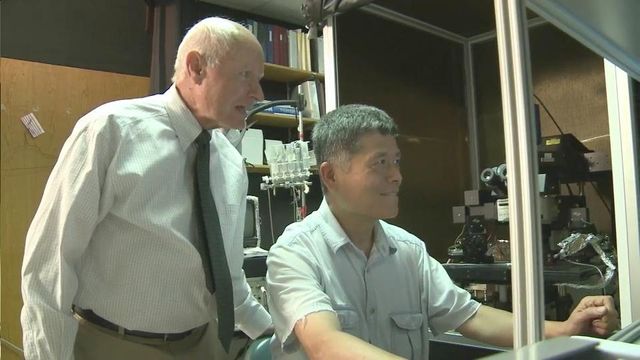Research at Duke may help develop epilepsy drugs
HTThe recurring seizures caused by epilepsy quite often keep people from completing every day activities. Those effected can struggle to obtain a driver's license or keep a steady job. Lisa Lowell, a 46-year-old mother of five daughters, knows how difficult dealing with the disorder can be.
Posted — UpdatedThose affected can struggle to obtain a driver's license or keep a steady job.
Lisa Lowell, a 46-year-old mother of five daughters, knows how difficult dealing with the disorder can be.
She and her family got used to her temporal lobe epilepsy, which would cause 30-second seizures that would keep her frozen in place and unable to speak.
"I would just move my clothes around," Lowell said of how she would indicate a seizure to her family. "And I'd make a 'hmmmm.'"
James McNamara, a professor of neurobiology at Duke University, said Lowell's particular form of the disorder accounts for about 40 percent of the cases of epilepsy.
For most, epilepsy and the problems associated with it begin in childhood. People can develop it as the result of a high fever that can injure cells in the brain's temporal lobe.
Recently, however, researchers identified the affected brain receptor tied to epilepsy in lab mice.
"We had prevented these animals from becoming epileptic," McNamara said. "Furthermore, now we know we have a target for which one could develop drugs."
The goal is to develop a drug for children dealing with the prolonged seizures, effectively stopping epilepsy before it begins.
Four years ago, Lowell had brain surgery at Duke Hospital. Surgeons removed a tiny part of her brain where her seizures were centered, allowing her to control them better. She's still on medicine to help, but Lowell is able to do more with her family.
Lowell said she's excited that Duke's research may help others avoid the limitations and social stigmas she's endured because of the condition.
• Credits
Copyright 2024 by Capitol Broadcasting Company. All rights reserved. This material may not be published, broadcast, rewritten or redistributed.






